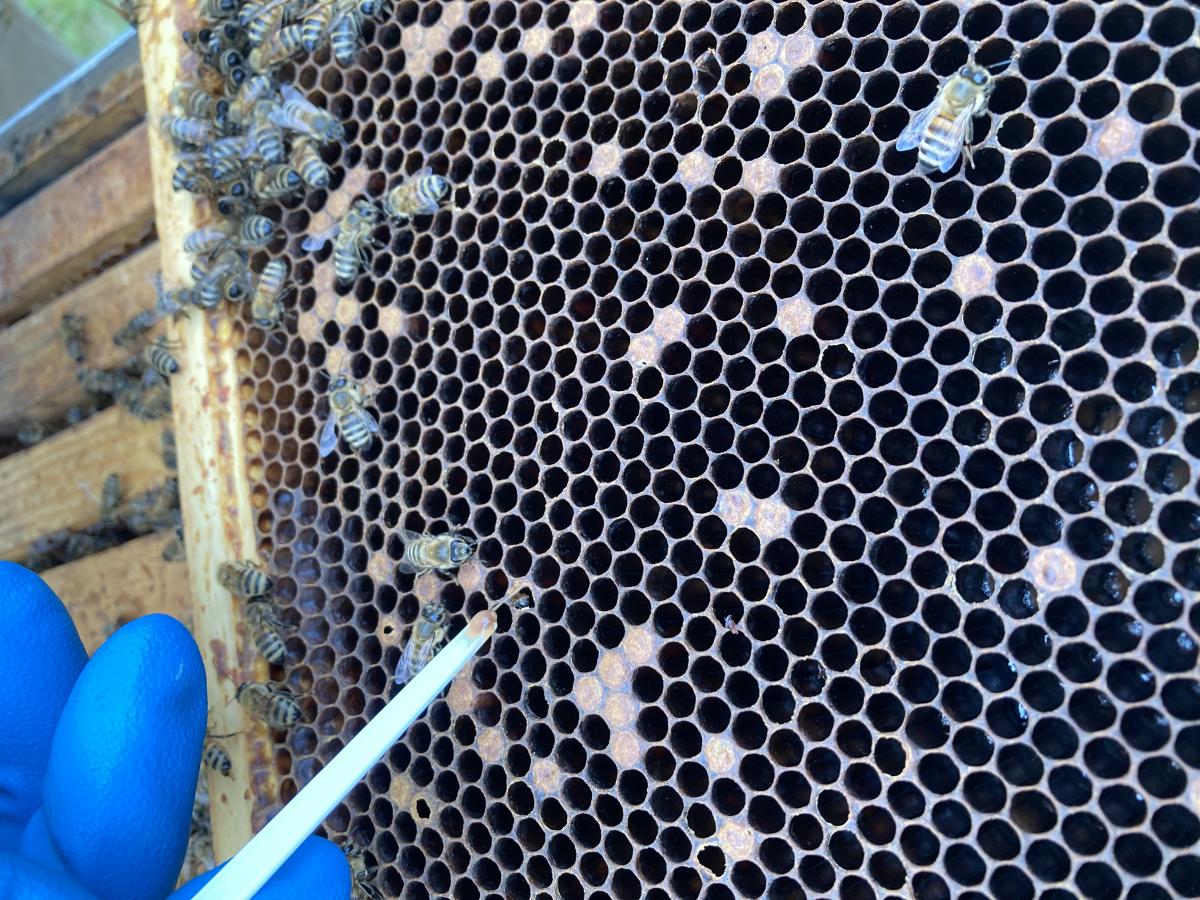By Brooke Decker, Pollinator Health Specialist
January 28, 2022 | Montpelier, VT - Backyard beekeeping is a popular hobby. While there are currently no regulations in Vermont limiting the number of colonies in the more densely populated regions of the state, backyard beekeepers in these areas should take into consideration the impact their hobby may have on their neighborhood. By putting some effort into minimizing potential negative effects on the neighbors, urban backyard beekeeping can bring many benefits to the community environment.
regions of the state, backyard beekeepers in these areas should take into consideration the impact their hobby may have on their neighborhood. By putting some effort into minimizing potential negative effects on the neighbors, urban backyard beekeeping can bring many benefits to the community environment.
Things to consider before establishing your apiary.
- Is there enough room in your yard to locate the apiary away from your property line (15+feet) and away from areas where people and domestic animals frequent? Especially important is the flight path of the bees. 15- 20 feet clearance in front of the hive is recommended to minimize defensive behaviors.
- Consider talking with your immediate neighbors before setting up your apiary. It is likely better to know if a neighbor is severely allergic to bees than to find out during an emergency.
- Consider the time and energy commitment needed to properly manage the bees. Beekeeping is not easy. Poor management can cause swarming or robbing behaviors which can lead to unhappy neighbors. Beekeeping equipment left lying around may attract other less desired animals to the area.
- Check with your local town clerk about any ordinances regulating backyard beekeeping in your town.
Things to consider after once your apiary is established:
- Register your colonies with the state of Vermont upon ownership of bees. https://agriculture.vermont.gov/sites/agriculture/files/New%20Apiary%20…
- Be reasonable about the number of colonies you keep in your area. In a densely populated area, 1-2 colonies is recommended.
- Honey bees will protect the entrance of their hive. Placing a solid fence section or other barrier a few feet in front of the hive entrance forces the bees to fly upwards out of the hive and may minimize contact with humans or animals by changing their flight path.
- Tell your neighbors about the bees and if you invite them to check out the hives, make sure they have proper protective clothing. Sharing a small jar of honey may help a reluctant neighbor feel more comfortable and appreciate your new hobby.
- Consider having insurance and or using a sting waiver for guests.
- Learn ways to prevent bee stings and proper treatment protocols for when stings do happen.
- Be very mindful when handling the colonies. Refrain from agitating the hive.
- Keep the apiary clean and tidy. Refrain from leaving equipment laying around. This will minimize robbing behaviors and minimize attracting unwanted animals to the area.
- Practice good swarm control techniques.
- Provide a water source for your bees. It's true bees drink water and may be attracted to your neighbors swimming pool or sprinkler! A shallow birdbath containing stones provides a water source for bees, the stones allow the bees to crawl from the water and prevent drowning.
While this is not an exhaustive list of considerations, it does provide some guidance for new beekeepers in densely populated areas.
Stinging insects can be scary to some people unfamiliar with the hobby, but with careful consideration, safe backyard beekeeping is possible.
More information on this subject can be found in an article by Jamie Ellis, printed in American Bee Journal May of 2016.
Find the full article here: http://entnemdept.ufl.edu/media/entnemdeptifasufledu/honeybee/pdfs/29,-…
More information about beekeeping in Vermont can be found on the VAAFM Apiary Webpage or by contacting the Apiary program AGR.bees@vermont.gov

